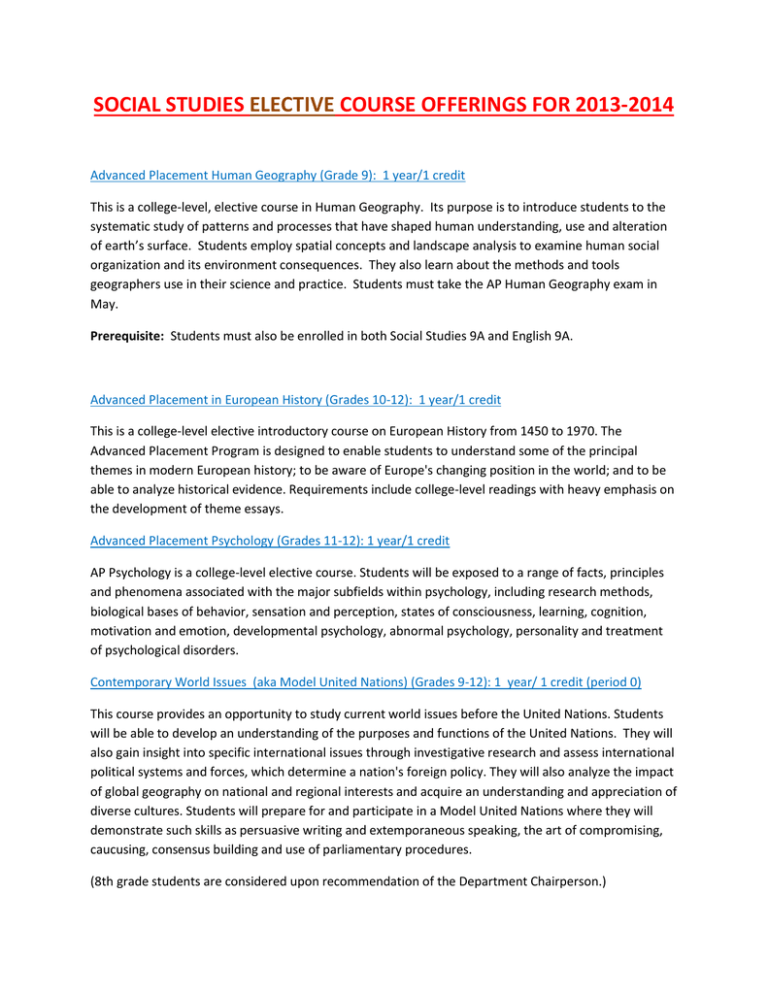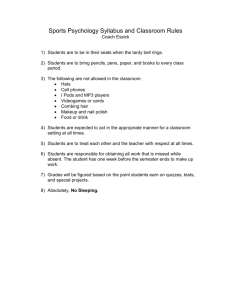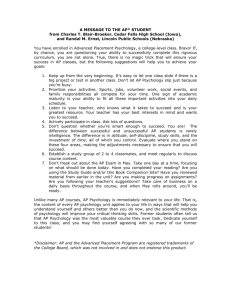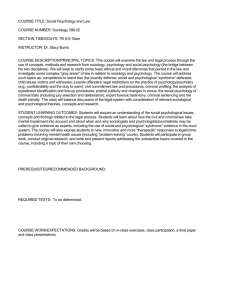SS Electives
advertisement

SOCIAL STUDIES ELECTIVE COURSE OFFERINGS FOR 2013-2014 Advanced Placement Human Geography (Grade 9): 1 year/1 credit This is a college-level, elective course in Human Geography. Its purpose is to introduce students to the systematic study of patterns and processes that have shaped human understanding, use and alteration of earth’s surface. Students employ spatial concepts and landscape analysis to examine human social organization and its environment consequences. They also learn about the methods and tools geographers use in their science and practice. Students must take the AP Human Geography exam in May. Prerequisite: Students must also be enrolled in both Social Studies 9A and English 9A. Advanced Placement in European History (Grades 10-12): 1 year/1 credit This is a college-level elective introductory course on European History from 1450 to 1970. The Advanced Placement Program is designed to enable students to understand some of the principal themes in modern European history; to be aware of Europe's changing position in the world; and to be able to analyze historical evidence. Requirements include college-level readings with heavy emphasis on the development of theme essays. Advanced Placement Psychology (Grades 11-12): 1 year/1 credit AP Psychology is a college-level elective course. Students will be exposed to a range of facts, principles and phenomena associated with the major subfields within psychology, including research methods, biological bases of behavior, sensation and perception, states of consciousness, learning, cognition, motivation and emotion, developmental psychology, abnormal psychology, personality and treatment of psychological disorders. Contemporary World Issues (aka Model United Nations) (Grades 9-12): 1 year/ 1 credit (period 0) This course provides an opportunity to study current world issues before the United Nations. Students will be able to develop an understanding of the purposes and functions of the United Nations. They will also gain insight into specific international issues through investigative research and assess international political systems and forces, which determine a nation's foreign policy. They will also analyze the impact of global geography on national and regional interests and acquire an understanding and appreciation of diverse cultures. Students will prepare for and participate in a Model United Nations where they will demonstrate such skills as persuasive writing and extemporaneous speaking, the art of compromising, caucusing, consensus building and use of parliamentary procedures. (8th grade students are considered upon recommendation of the Department Chairperson.) Criminal Justice (Grades 10-12): ½ year/½ credit This course will investigate the different aspects of the criminal justice system and process. Students will study the history of American law, the administration of criminal justice, and the nature and problems of crime in contemporary society. The course content is divided into the following general units: The Criminal Justice System and Process, The Adversary System, Lawmaking, Crime, Corrections and Police Procedures and Criminal Justice as a profession. Psychology (Grades 10-12): ½ year/½ credit This one-semester course is designed to introduce students to the field of psychology. Students will become familiar with the principles, concepts and theories that constitute an introductory course of study. Global Connections (Grades 10-12): ½ year/ ½ credit- Spring semester This course will enable the students to understand and appreciate the major themes in world history that connect the present to the past, and one world region to another. More importantly, students will be able to express their abilities in writing. Emphasis will be placed on mastering thematic essays and document-based questions (DBQ’s). American Connections (Grades 11-12): ½ year/½ credit This course will enable students to develop connections between issues, themes, decisions and developments in American History from one era to another. More importantly, students will be given extensive practice in analyzing and evaluating documents, and in writing thematic essays and documentbased questions. The five Learning Standards in Social Studies are infused into all units. New York State performance indicators provide the basis for lessons and projects.



